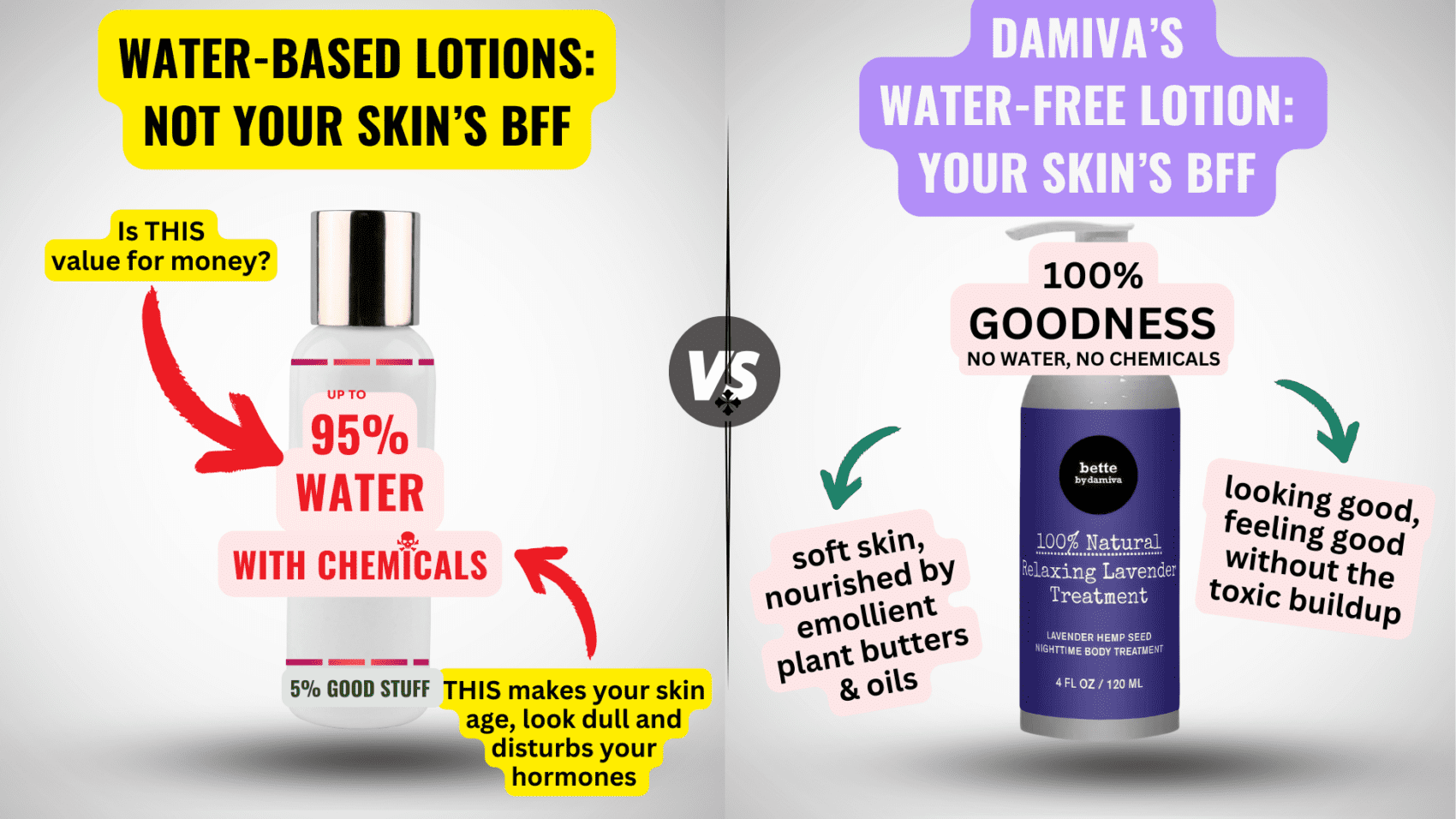Menopause and Sexual Health
Menopause marks a significant transition in the lives of women, typically occurring in the late 40s or early 50s. It signifies the end of menstrual cycles and reproductive fertility, characterized by the cessation of ovarian function and a decline in the production of hormones such as estrogen and progesterone. This natural biological process can have profound effects on various aspects of health, including sexual well-being.
Common Sexual Side Effects
The hormonal upheaval brought about by menopause can lead to a range of sexual side effects. Many women experience decreased libido, which can be attributed to lower levels of estrogen and testosterone that diminish sexual desire. Vaginal atrophy is another common issue, where the vaginal tissues become thinner, less elastic, and more prone to irritation, leading to discomfort or pain during intercourse—a condition known as dyspareunia. Additionally, changes in blood flow and nerve function can result in reduced clitoral sensitivity and a decline in the intensity or frequency of orgasms, sometimes leading to female orgasmic disorder. These changes can significantly impact a woman’s sexual satisfaction and overall quality of life.
Scope of the Article
This article aims to explore the multifaceted impact of menopause on sexual health, delving into the hormonal, anatomical, psychological, and emotional factors that contribute to the decreased response and pleasure experienced by many women during this stage of life. We will examine the prevalence of sexual problems in postmenopausal women, compare sexual pleasure across different age groups, and discuss concerns related to orgasmic disorders. By weaving together scientific research, statistical data, and personal accounts, we will shed light on the interconnectedness of sexual problems and offer perspectives on managing sexual health after menopause. The ultimate goal is to provide a comprehensive understanding of these issues, paving the way for future research and therapy that can improve the sexual well-being of menopausal women.
Hormonal Changes and Sexual Response
Role of Estrogen in Sexual Function
Estrogen plays a pivotal role in female sexual function. It is instrumental in maintaining the health of the vaginal tissues and lubrication, which are critical for comfortable and pleasurable sexual intercourse. Estrogen also contributes to the elasticity of the vaginal walls and the blood flow to the genital area, enhancing sensation and the potential for orgasm. During menopause, estrogen levels decline significantly, leading to a range of sexual side effects.
Impact of Hormonal Fluctuations on Libido
The hormonal fluctuations that accompany menopause can have a profound impact on a woman’s libido. Estrogen, in particular, is closely linked to sexual desire, and its decrease can lead to a diminished interest in sex. Additionally, other menopausal symptoms such as mood swings, fatigue, and hot flashes can indirectly affect a woman’s libido by reducing overall well-being and energy levels.
Vaginal Changes and Arousal
Menopause can lead to anatomical and physiological changes in the vagina, often referred to as vaginal atrophy. This condition is characterized by thinning of the vaginal walls, decreased lubrication, and increased fragility of the tissues. These changes can result in discomfort or pain during sexual activity, which can dampen arousal and make sex less enjoyable. The reduced blood supply to the clitoris and lower vagina can also affect the sensitivity and pleasure experienced during sexual activity, potentially leading to a less intense or absent orgasmic response.
In summary, the hormonal changes of menopause can significantly alter sexual response and pleasure. The decline in estrogen can lead to vaginal atrophy, decreased libido, and changes in arousal and orgasmic function. Understanding these changes is crucial for addressing the sexual side effects of menopause and improving the sexual health and quality of life for postmenopausal women.
Anatomical and Physiological Changes
Vascular and Nervous System Alterations
Menopause brings about significant changes in the vascular and nervous systems that can affect sexual function. The reduction in estrogen levels is associated with a decrease in blood flow to the genital region, which can lead to diminished arousal and lubrication. The vascular changes can also contribute to the development of genitourinary syndrome of menopause (GSM), which encompasses a range of symptoms including vaginal dryness, irritation, and pain during intercourse. Additionally, alterations in the nervous system may result in decreased sensitivity and altered neural pathways responsible for sexual response, further complicating the experience of pleasure and orgasm.
Sensitivity of the Clitoris
The clitoris, a pivotal organ for sexual pleasure in women, undergoes changes during menopause that can impact its sensitivity. Estrogen plays a crucial role in maintaining the tissue health and sensitivity of the clitoris. As estrogen levels decline, there may be a reduction in clitoral sensitivity, which can lead to challenges in achieving orgasm. The changes in clitoral blood flow and nerve function can also contribute to a longer time required for arousal and a decrease in the intensity of orgasms.
Orgasmic Function and Challenges
Orgasmic function in postmenopausal women can be affected by a combination of hormonal, anatomical, and physiological changes. The hormonal fluctuations that characterize menopause can lead to a decrease in libido and changes in the orgasmic threshold. Anatomically, the vaginal tissues become thinner and less elastic, a condition known as vaginal atrophy, which can make sexual activity uncomfortable or even painful, thereby affecting the ability to reach orgasm. Physiologically, the reduced blood flow and altered nervous system responses can result in weaker, less frequent, or absent orgasms. These challenges can be distressing for women and may require a multifaceted approach to management, including medical and psychological interventions.

THEN IT CONTAINS TOXIC CHEMICALS. WHY RISK IT GETTING SICK? GO CHEMICAL FREE.
Psychological and Emotional Factors
Mental Health and Sexual Enjoyment
The intricate relationship between mental health and sexual enjoyment is particularly evident during menopause. As estrogen levels decline, many women experience mood swings, anxiety, and depression, which can significantly dampen sexual desire and satisfaction. The psychological transition, coupled with the physical changes of menopause, can lead to a diminished sense of sexual self and enjoyment. It is crucial for healthcare providers to recognize and address these mental health concerns, as they can be a major barrier to a fulfilling sex life during and after menopause.
Body Image and Self-Esteem
Menopause often brings about changes in body composition, such as weight gain and redistribution of fat, particularly around the abdomen. These changes can affect a woman’s body image and self-esteem, potentially leading to a decreased interest in sexual activity. Societal pressures and stereotypes that equate youth with sexual attractiveness can exacerbate these feelings, making it important for women to receive support in redefining beauty and self-worth during this stage of life.
The Role of Intimacy and Relationship Dynamics
Intimacy and the dynamics of a woman’s relationship play a pivotal role in sexual desire and pleasure during menopause. Open communication with a partner about the changes occurring can help in adjusting sexual practices and maintaining intimacy. Emotional closeness and mutual understanding within the relationship are key components that can either hinder or enhance sexual satisfaction. It is not uncommon for relationship dynamics to shift during menopause, and couples may benefit from counseling to navigate this transition effectively.
In conclusion, the psychological and emotional factors associated with menopause are deeply interconnected with a woman’s sexual health. Addressing mental health, fostering a positive body image, and nurturing intimate relationships are all essential in managing the decreased response and pleasure often associated with the sexual side effects of menopause.
Statistical Overview of Sexual Dissatisfaction
Prevalence of Sexual Problems in Postmenopausal Women
Sexual dysfunction is a significant concern for postmenopausal women, with a substantial number experiencing decreased sexual desire, arousal difficulties, and orgasmic challenges. Studies indicate that the prevalence of sexual problems in this demographic is notably high. For instance, a nationwide survey revealed that 23% of women aged 57 to 85 did not find sex pleasurable, and of these, 64%—or 15% of women in the overall survey—were troubled by this lack of pleasure. Another survey found that about 5% of US women have a problem achieving orgasm that causes them concern, with higher rates among women aged 45 to 64 and those 65 or older (6% in both groups) compared to younger women (3%).
Comparison of Age Groups and Sexual Pleasure
Age is a significant factor in sexual satisfaction, with older age groups generally reporting more sexual problems. The experience of sex as anticlimactic and less pleasurable is likely to dampen desire over time. Orgasm problems are more common in women over 45, suggesting that the menopausal transition can have a profound impact on sexual pleasure. The hormonal and physiological changes associated with menopause, including reduced estrogen levels and vaginal changes, contribute to this decline in sexual enjoyment.
Concerns About Orgasmic Disorders
Orgasmic disorders in postmenopausal women are a growing concern, with many experiencing less intense orgasms, longer times to achieve orgasm, or an absence of orgasm altogether. This condition, often referred to as “female orgasmic disorder,” is particularly prevalent among older women. The reduced blood supply to the clitoris and lower vagina, along with vaginal atrophy and dryness, play significant roles in these orgasmic challenges. The interconnectedness of sexual problems is evident, as difficulties with arousal and desire can lead to a cycle of decreased pleasure and further sexual dissatisfaction.
In conclusion, sexual dissatisfaction in postmenopausal women is a multifaceted issue influenced by hormonal changes, age, and psychological factors. Addressing these concerns requires a comprehensive approach that considers the complex interplay of physiological, emotional, and relational aspects of sexual health.

From unhappy, dry, and sandpaper to silky, smooth and feeling good. That’s Cleo. Cleo is a 100% natural labial balm to moisture and soothe “your other lips”. Cleo is chemical-free, water-free, pH optimized and helps maintain and restore your delicate labial skin’s natural flora. Ideal for daily use or as needed. Get the most silky, lovable lips ever.
Interconnectedness of Sexual Problems
How One Issue Leads to Another
The interconnected nature of sexual problems during menopause is complex and multifaceted. A decline in estrogen levels can lead to vaginal dryness and discomfort during intercourse, which may result in a reluctance to engage in sexual activity. This avoidance can further exacerbate issues of intimacy and emotional connection with a partner, creating a feedback loop that diminishes sexual desire and satisfaction. Additionally, the physiological changes associated with menopause, such as decreased blood flow to the genital area and altered nerve function, can delay or inhibit orgasmic response, contributing to a cycle of frustration and decreased sexual pleasure.
The Cycle of Decreased Desire and Pleasure
The cycle of decreased desire and pleasure is a phenomenon where one sexual issue precipitates another, creating a downward spiral of sexual dissatisfaction. For instance, the onset of menopausal symptoms can lead to a decrease in self-esteem and body image, which in turn can affect mental health and contribute to feelings of anxiety or depression. These psychological factors can further dampen libido, making sexual encounters less frequent and less enjoyable. The cycle is perpetuated as the lack of sexual activity can lead to further vaginal atrophy and discomfort, reinforcing the initial problem.
Case Studies and Personal Accounts
Case studies and personal accounts provide insight into the real-world implications of the interconnectedness of sexual problems during menopause. One case study highlighted a postmenopausal woman who experienced a significant drop in sexual desire following the onset of menopausal symptoms. Her reluctance to engage in sexual activity led to marital discord, which only served to further decrease her interest in sex. Through therapy that addressed both the physiological and psychological aspects of her sexual dysfunction, she was able to break the cycle and regain a fulfilling sexual relationship with her partner.
In another personal account, a woman described how the loss of estrogen not only caused physical discomfort during sex but also led to a profound sense of loss of her sexual identity. The impact on her relationship was significant, as she and her partner struggled to find new ways to maintain intimacy. It was only when they sought professional help and began to openly communicate about their challenges that they were able to navigate the complexities of their sexual relationship post-menopause.
Conclusion and Perspectives on Sexual Health After Menopause
Summarizing the Challenges and Solutions
The transition through menopause often brings about a constellation of changes in a woman’s sexual health. Hormonal fluctuations, particularly the decline in estrogen, can lead to a decrease in libido, vaginal dryness, and discomfort during intercourse, collectively contributing to a diminished sexual response and pleasure. Anatomical and physiological changes, such as alterations in the vascular and nervous systems, can further exacerbate these issues, affecting the sensitivity of the clitoris and orgasmic function.
Psychological and emotional factors, including mental health, body image, and self-esteem, play a significant role in sexual enjoyment. The dynamics of intimacy and relationships also evolve during this period, influencing sexual satisfaction. Despite the challenges, solutions exist. Hormone replacement therapy, local estrogen treatments, and androgens have shown efficacy in improving sexual desire and function. Non-hormonal treatments, such as vaginal moisturizers, lubricants, and laser therapies, offer alternatives for symptom relief. Psychological interventions and open communication with healthcare providers can also aid in managing sexual problems.
Future Directions in Research and Therapy
Future research should focus on a multidimensional approach to understand the interconnectedness of biological, psychological, and social factors affecting sexual health after menopause. Longitudinal studies could provide insights into the long-term efficacy and safety of current treatments. There is also a need for the development of new therapeutic options that address the diverse needs of postmenopausal women. Innovations in telemedicine and digital health could offer accessible platforms for education and support.
Therapeutically, personalized medicine should be at the forefront, considering individual differences in the experience of menopause and sexual health. The exploration of alternative therapies, such as mindfulness and cognitive-behavioral strategies, could complement existing treatments. Additionally, healthcare providers must be equipped with the knowledge and skills to discuss sexual health with their patients confidently and compassionately.
Personal and Societal Implications
The personal implications of decreased sexual response and pleasure after menopause are profound, affecting a woman’s sense of identity, quality of life, and intimate relationships. Societally, the normalization of discussions around menopause and sexual health is imperative. Education and awareness campaigns can help dispel myths and encourage women to seek help.
On a broader scale, recognizing the importance of sexual health as a component of overall well-being can lead to policy changes that ensure better access to care and support for postmenopausal women. As the population ages, addressing the sexual health needs of this demographic becomes increasingly critical for public health.
In conclusion, while menopause can present challenges to sexual health, understanding these issues and exploring a variety of solutions can lead to improved outcomes. With continued research, therapy advancements, and societal support, postmenopausal women can enjoy a fulfilling sexual life.











